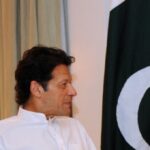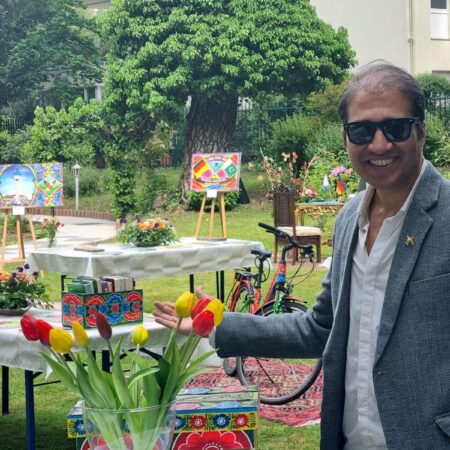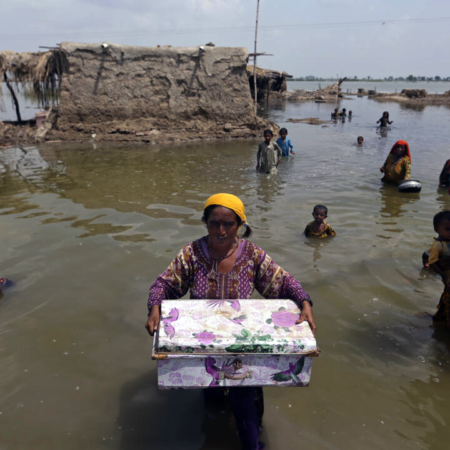Set in a lower-middle-class neighborhood, Il Wali Gali Mein begins as a fun romantic dramedy before gradually devolving into a tutorial on how to write a female lead—or, for that matter, a love story.
The drama, which stars Hamza Sohail as Mujji and Sajal Aly as Deeju, is based on the “enemy families and lovers” theme, which is a variation of the traditional “enemies-to-lovers” narrative.
Early episodes of Dil Wali Gali Mein, which were written by Zafar Mairaj and directed by Kashif Nisar, give viewers a new perspective on contemporary love with humorous and relatable moments. They depict Deeju and Mujji’s efforts to start a life together despite the conflict between their families.
Set in a lower-middle-class neighborhood, Dil Wali Gali Mein begins as a cheerful romantic dramedy before gradually turning into a tutorial on how to write a female lead—or, for that matter, a love story.
The drama, which stars Hamza Sohail as Mujji and Sajal Aly as Deeju, is based on the “enemy families and lovers” theme, which is a variation of the traditional “enemies-to-lovers” narrative.
Early episodes of Dil Wali Gali Mein, which were written by Zafar Mairaj and directed by Kashif Nisar, give viewers a new perspective on contemporary love with humorous and relatable moments. They depict Deeju and Mujji’s efforts to start a life together despite the conflict between their families.
However, viewers get disillusioned as the drama develops because their love story gets caught up in a tiresome loop of manipulation, entitlement, and emotional immaturity. The issue? One character with lousy writing.
A brief summary
BEWARE OF SPOILERS

The drama began in a courthouse when first cousins Khadeeja Bilal (Deeju) and Mujtaba Siddique (Mujji) were married against their families’ wishes.
The two families are at odds: Durdana Siddique, who owns a school with her daughter Tamkinat and son-in-law Ishtiaq, is the father of Mujji. Bilal and Lubna, Deeju’s parents, are critical of Muji’s family. Their children, Deeju, Cookie, and Dabu, have consequently been raised with a skewed opinion of them.
The drama’s writing leaves a lot to be desired because it never makes it apparent why the two families are in conflict. It makes a passing reference to a disagreement that occurred between Lubna and Durdana soon after Lubna married Bilal, which led to the couple moving out and starting a new life on their own.
Though they are ambiguous and underdeveloped, sporadic allusions allude to a troubled background, particularly Deju’s reluctance to confront the same charges her mother previously faced.
We only know that Deeju and Mujji’s relationship gets more poisonous as a result of these unresolved, ignored issues, with Deeju acting impulsively and carelessly and growing more unlikeable while Mujji has little influence over the circumstances.
Deeju’s personality: Intentional immaturity or poor writing?

Any appealing characteristics Deeju may have once possessed are overshadowed by her persistent negativity, manipulative behavior, and stubbornness. Rather than developing into a strong, likeable female lead, she ends up being a prime example of how to act badly in a relationship.
Due to privacy concerns, Deeju leaves her in-laws’ house shortly after they get married. Despite being legitimate, she moves in with Mujji in her parents’ house, where they lack a separate room.
A local don then offers them an apartment, and once he passes away, they relocate to an even smaller location in central Lahore. They also borrow money from friends and relatives to invest in an apartment that is still under development. Deeju and other residents are embroiled in a court battle after learning that the apartment complex is the subject of a legal lawsuit.
Deeju’s character arc is characterized by impetuous, self-centered choices rather than showing a lady adapting to her new existence with fortitude.
Although it is true that women in our society are frequently expected to “adjust” by moving into a completely new household and leaving the comforts of their own home behind, the story ultimately fails to evoke enduring empathy for Deeju due to the way she handles difficulties. When she succeeds in obtaining what she desires, as is frequently the case, she is unable to maintain it.
She also keeps making snap decisions that land her and Mujji in hot water, such as forcing Mujji to take financial risks or leaving her in-laws’ residence without a good backup plan. Although her acts show a yearning for independence, they also show that she has not given much thought to the practical and emotional reality of her relationship with Mujji and their financial circumstances.
Additionally, Deeju turns violent in her connection with Mujji. When she finds him with another woman, she assumes the worst and files for divorce without talking to him about it. She also publicly smacks him over a mistake.
Her unfounded charges of drug usage, domestic violence, and adultery render her unredeemable in the eyes of the audience. This was character assassination, not merely dramatic exaggeration.
The good guy conundrum: The drawbacks of Mujji’s devotion

Mujji isn’t a passive observer, even if Deeju is frequently seen as the one making decisions in their marriage. Love and a desire to see Deeju happy drive him to be an active and willing participant.
Muji is presented right away as the epitome of virtue: kind, affectionate, and emotionally invested.
Mujji demonstrates that he can stand up for his wife when he demands an apology from his mother after she humiliates Deeju’s father in front of school personnel and eventually departs the family home when she declines.
Although Mujji is a kind and devoted partner, he finds it difficult to stand up to Deeju and avoids conflict. He consistently complies with Deeju’s requests, not because he is weak but rather because he values maintaining harmony over doing what is right. Even when Deju exceeds significant limits, he is ready to forgive.
His reaction to her slapping him at work is not one of rage. He goes to her parents’ house to explain everything after she assumes the worst after seeing him with another lady and leaves without paying attention. He attempts several times to talk to Deju and address the situation after getting divorce papers and being the target of grave charges, but she never gives him a chance.
Additionally, he keeps telling the court that he wants to be with her and that he loves her. He even decides against hiring a lawyer because he is worried about involving a third party in what he views as a private problem.
What went wrong
Was Deeju meant to depict a flawed, modern woman striking back against patriarchy, but the execution was so bad it backfired?
Perhaps the writers intended Deeju to be a bold, nuanced female figure — someone straining against traditional standards and refusing to conform. Her assertiveness, however, comes across as entitlement and a desire for control in the absence of a multi-layered script or true vulnerable moments.
In addition to failing to provide him with emotional support, she files for divorce while Mujji is at his lowest point—unemployed, grieving his mother’s deteriorating health, and balancing household and academic obligations following his brother’s departure.
The drama may have aimed to show a woman standing up for her rights, but instead it creates a figure who is uncaring.
A catastrophic outcome
The conclusion of Dil Wali Gali Mein was arguably its most annoying feature. By the end of the show, Deeju’s abrupt change of heart felt rushed and self-serving. As soon as the apartment case was resolved, she gave divorce another thought. That, along with the change in her demeanor and attitude, gave the impression that her decisions were driven more by her need for money than by love.
The bottom line
Dil Wali Gali Mein celebrated entitlement disguised as assertiveness rather than embracing independence or questioning social norms. By doing this, it compromised the mutual respect and emotional work necessary to keep a partnership strong.
Instead, it emphasized the negative effects of badly written characters in what should have been a progressive love story. The writing never gave the characters—especially Deeju—the opportunity to develop in a significant way, even with strong performances and respectable production value.
Dil Wali Gali Mein has the potential to be a novel perspective on young married life at its best. At its worst, it turned into a warning about how bad character development can make a romantic comedy that was meant to be entertaining into a frustrating experience.
Better writing is the first step toward more nuanced, truthful depictions of women on film. Deeju was worthy of that. We also did.












No Comment! Be the first one.